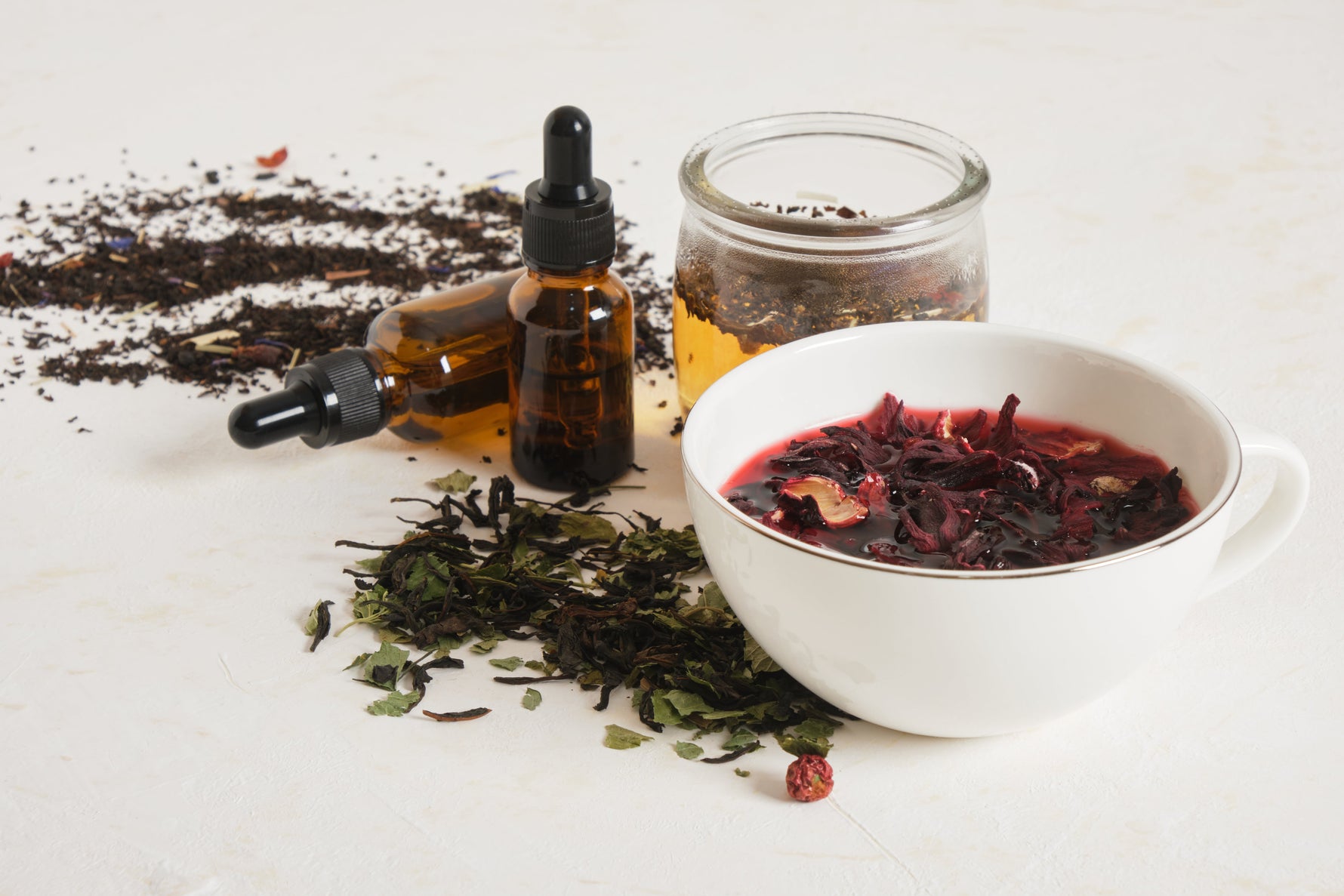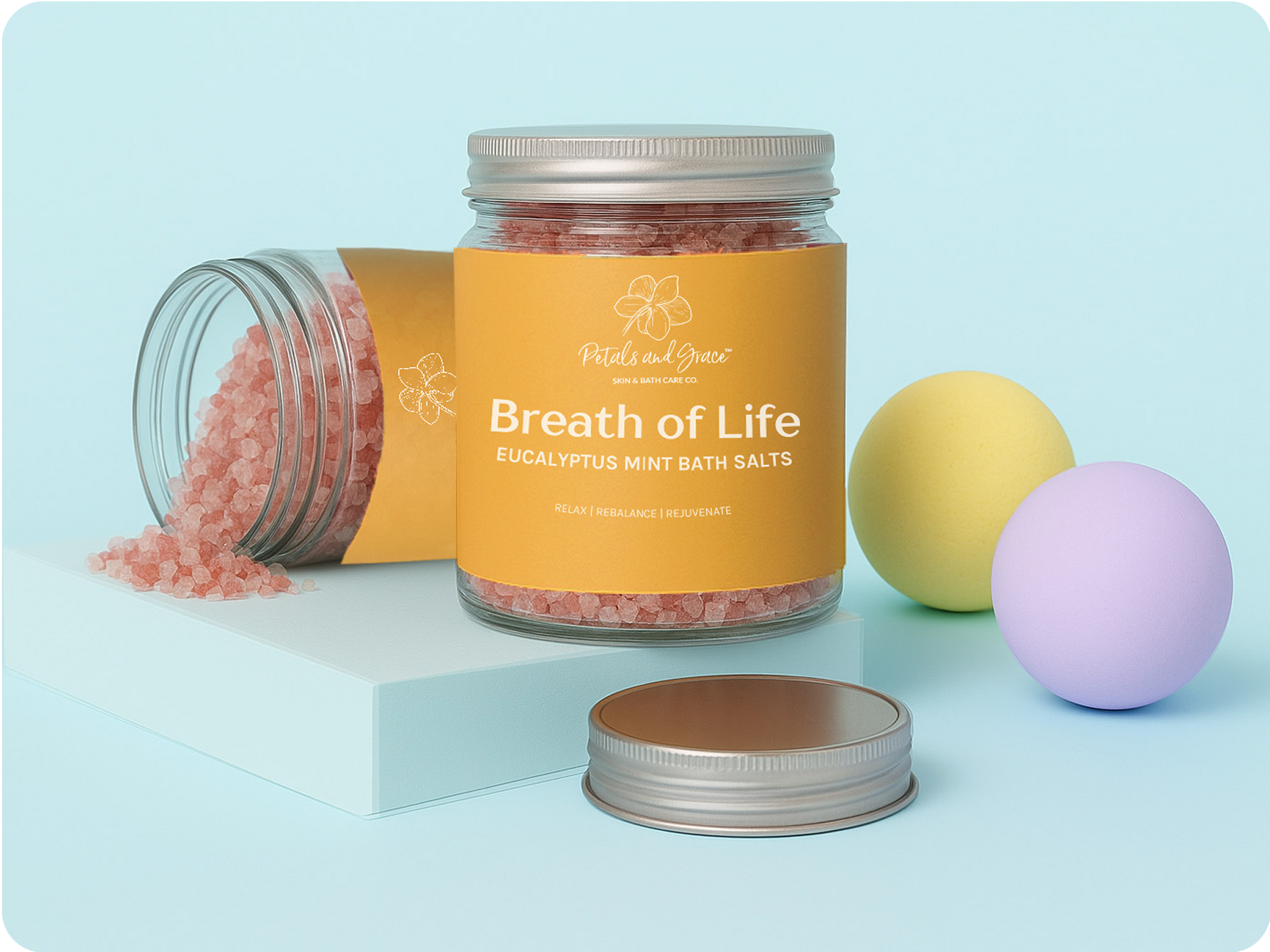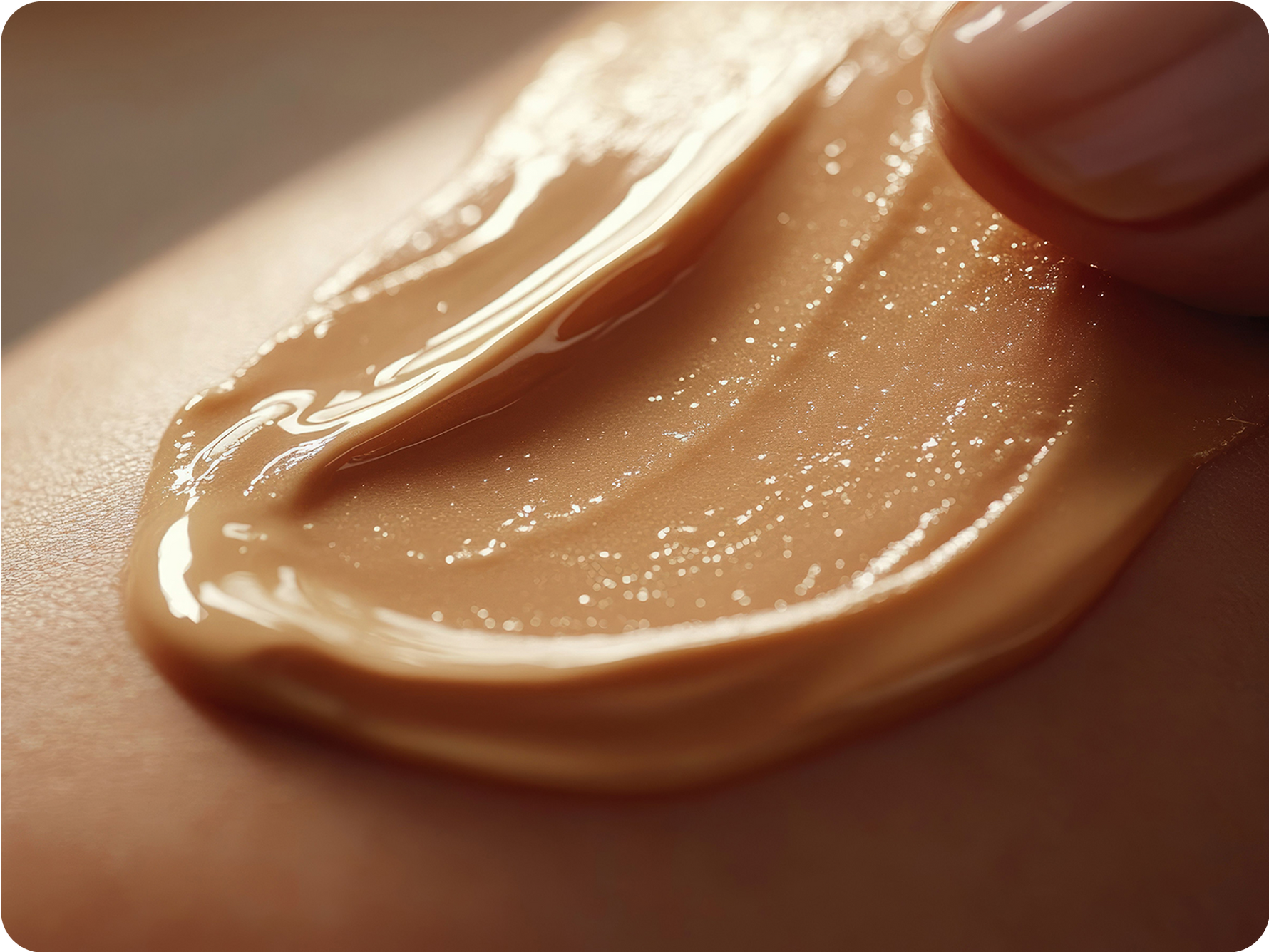News

News
The Hydrating Benefits of Hibiscus for the Skin
by My Store Admin on Mar 27 2025
Hibiscus, often referred to as the “rose mallow,” is not only a stunning flower but also a powerhouse ingredient in skincare. Known for its vibrant color and tropical appeal, hibiscus is packed with antioxidants, vitamins, and natural acids that can significantly benefit the skin. One of its most notable advantages is its hydrating properties. Let’s explore how hibiscus can help keep your skin hydrated and healthy.
What Makes Hibiscus Special?
Hibiscus is rich in several key components that contribute to its hydrating benefits:
Natural Acids: Hibiscus contains alpha-hydroxy acids (AHAs), which are known for their ability to exfoliate the skin gently. This helps to remove dead skin cells, promoting a smoother and more radiant complexion.
Antioxidants: The flower is loaded with antioxidants, such as vitamin C and anthocyanins, which help protect the skin from environmental stressors and free radicals. This protection is essential for maintaining skin hydration and preventing premature aging.
Mucilage: Hibiscus has a high mucilage content, a gel-like substance that helps retain moisture. This property makes hibiscus an excellent natural moisturizer, providing hydration to the skin.
Hydrating Benefits of Hibiscus
Deep Moisture: Hibiscus acts as a natural humectant, attracting moisture to the skin and helping to keep it hydrated. This is particularly beneficial for those with dry or dehydrated skin, as it can restore moisture levels and improve overall skin texture.
Improved Elasticity: The antioxidants and vitamins in hibiscus help to boost collagen production, which is essential for maintaining skin elasticity. Improved elasticity means that the skin can retain moisture better, leading to a plumper and more youthful appearance.
Soothing Properties: Hibiscus has anti-inflammatory properties that can help calm irritated or sensitive skin. By soothing inflammation, hibiscus can prevent moisture loss and promote a more balanced complexion.
Brightening Effect: Regular use of hibiscus can help brighten the skin and even out skin tone. The exfoliating properties of AHAs help to remove dull, dead skin cells, revealing a more radiant and hydrated complexion underneath.
Natural Toner: Hibiscus can be used as a natural toner, helping to balance the skin’s pH levels and tighten pores. A well-balanced pH is crucial for maintaining hydration and preventing excess oil production.
Conclusion
Hibiscus is a remarkable ingredient that offers numerous hydrating benefits for the skin. Its natural acids, antioxidants, and mucilage work together to provide deep moisture, improve elasticity, and promote a radiant complexion. By incorporating hibiscus into your skincare routine, you can enjoy its hydrating properties and achieve healthy, glowing skin. Hibiscus is a beautiful and effective way to nourish your skin from!

News
The Benefits of Soaking in Bath Salts: Epsom Salt and Pink Himalayan Salt
by My Store Admin on Mar 27 2025
There’s nothing quite like a warm bath to unwind after a long day, and adding bath salts can elevate that experience to a whole new level. Among the most popular options are Epsom salt and pink Himalayan salt, both of which offer unique benefits for the body and mind. Let’s explore the benefits of soaking in these salts and how they can enhance your bathing ritual.
What Are Bath Salts?
Bath salts are water-soluble minerals that are added to bathwater to enhance the bathing experience. They can help to relax muscles, soothe the skin, and promote overall well-being. While there are many types of bath salts available, Epsom salt and pink Himalayan salt are two of the most commonly used.
Epsom Salt: The Soothing Mineral
Epsom salt, chemically known as magnesium sulfate, has been used for centuries for its therapeutic properties. Here are some of the benefits of soaking in Epsom salt:
Muscle Relaxation: Epsom salt is renowned for its ability to relieve muscle tension and soreness. The magnesium in Epsom salt is absorbed through the skin, helping to relax muscles and reduce inflammation.
Stress Relief: Soaking in an Epsom salt bath can promote relaxation and reduce stress levels. The warm water combined with magnesium can help calm the mind and body, making it an excellent choice for unwinding after a hectic day.
Improved Sleep: Magnesium is known to support better sleep quality. A warm bath with Epsom salt before bedtime can help prepare your body for a restful night’s sleep.
Detoxification: Epsom salt baths can aid in detoxifying the body by promoting sweating and helping to draw out toxins.
Skin Benefits: Epsom salt can help soothe skin irritations and conditions such as eczema and psoriasis. It can also help exfoliate dead skin cells, leaving your skin feeling soft and smooth.
Pink Himalayan Salt: The Mineral-Rich Gem
Pink Himalayan salt is harvested from the Khewra Salt Mine in Pakistan and is known for its beautiful pink hue and rich mineral content. Here are some benefits of soaking in pink Himalayan salt:
Mineral Absorption: Pink Himalayan salt contains over 80 trace minerals, including potassium, calcium, and magnesium. Soaking in this salt can help replenish essential minerals in the body.
Balancing pH Levels: The minerals in pink Himalayan salt can help balance the body’s pH levels, promoting overall health and wellness.
Improved Circulation: Soaking in warm water with pink Himalayan salt can enhance blood circulation, which can help relieve muscle tension and promote healing.
Respiratory Benefits: The salt’s natural properties can help clear the airways and improve respiratory function. This makes it a great option for those suffering from allergies or respiratory issues.
Skin Nourishment: Pink Himalayan salt can help exfoliate the skin and improve its texture. It can also help to hydrate and nourish the skin, leaving it looking radiant.
How to Use Bath Salts
To enjoy the benefits of Epsom salt or pink Himalayan salt, follow these simple steps:
Fill the Tub: Start by filling your bathtub with warm water. The temperature should be comfortable for you.
Add Bath Salts: Add about 1-2 cups of Epsom salt or pink Himalayan salt to the bathwater. You can also mix both for a unique experience.
Soak and Relax: Immerse yourself in the bath for at least 15-20 minutes. Use this time to relax, meditate, or enjoy a good book.
Rinse Off: After soaking, rinse your body with fresh water to remove any salt residue.
Moisturize: Follow up with a good moisturizer to keep your skin hydrated.
Conclusion
Soaking in bath salts like Epsom salt and pink Himalayan salt can provide numerous benefits for both the body and mind. From muscle relaxation and stress relief to skin nourishment and mineral absorption, these salts can transform your bathing experience into a therapeutic ritual. So, the next time you need to unwind, consider adding these mineral-rich salts to your bath for a soothing escape!

News
Understanding the Skin Barrier: What It Is and How to Protect It
by My Store Admin on Mar 27 2025
The skin barrier is one of the most vital components of our skin, yet it often goes unnoticed until issues arise. Understanding what the skin barrier is and how to protect it can lead to healthier, more resilient skin. Here’s a closer look at this essential layer and tips for maintaining its integrity.
What is the Skin Barrier?
The skin barrier, also known as the stratum corneum, is the outermost layer of the skin. It acts as a protective shield, safeguarding the underlying layers from environmental aggressors such as pollutants, bacteria, and harmful UV rays. Additionally, the skin barrier plays a crucial role in preventing moisture loss, keeping the skin hydrated and plump.
The skin barrier is composed of dead skin cells (corneocytes) and lipids (fats) that work together to form a cohesive and protective layer. When this barrier is intact, it functions effectively to maintain skin health. However, when compromised, it can lead to various skin issues, including dryness, irritation, redness, and increased sensitivity.
Signs of a Compromised Skin Barrier
A healthy skin barrier is essential for overall skin health. Here are some signs that your skin barrier may be compromised:
Dryness and Flakiness: If your skin feels tight, rough, or looks flaky, it may indicate a weakened barrier.
Redness and Irritation: Increased sensitivity, redness, or irritation can signal that your skin barrier is not functioning properly.
Breakouts: A compromised barrier can lead to an increase in acne and other blemishes due to the entry of bacteria and irritants.
Itching or Burning Sensation: If your skin feels itchy or burns easily, it may be a sign of barrier dysfunction.
How to Protect Your Skin Barrier
Moisturize Regularly: Use a good moisturizer that contains ingredients that hydrate, moisturize and contain emollients. These ingredients help to replenish the skin’s lipid barrier and retain moisture.
Avoid Harsh Cleansers: Choose gentle, sulfate-free cleansers that do not strip the skin of its natural oils. Over-cleansing can damage the skin barrier.
Limit Exfoliation: While exfoliation can be beneficial, overdoing it can lead to barrier damage. Limit physical and chemical exfoliation to 1-3 times a week, depending on your skin type.
Use Sunscreen Daily: Protecting your skin from UV damage is crucial for maintaining a healthy barrier. Use a broad-spectrum sunscreen with at least SPF 30 every day, even on cloudy days.
Stay Hydrated: Drinking plenty of water helps to keep your skin hydrated from the inside out. Hydration is key to maintaining a healthy skin barrier.
Be Mindful of Ingredients: Avoid products with harsh chemicals that can irritate the skin.
Consider a Humidifier: If you live in a dry climate or during winter months, using a humidifier can help maintain moisture levels in the air, benefiting your skin barrier.
Consult a Dermatologist: If you’re experiencing persistent skin issues, consult a dermatologist for personalized advice and treatment options.
Conclusion
The skin barrier is essential for maintaining healthy skin, and protecting it should be a priority in your skincare routine. By understanding its function and implementing protective measures, you can help ensure your skin remains resilient, hydrated, and glowing. Remember, a healthy skin barrier is the foundation of beautiful skin!
News
The Benefits of Exfoliating Your Body: A Dermatologist’s Perspective
by My Store Admin on Mar 27 2025
Exfoliation is a crucial step in any skincare routine, yet it is often overlooked when it comes to body care. While many people focus on their facial skin, the skin on our bodies deserves just as much attention. Here’s why exfoliating your body is essential and the benefits it brings.
What is Exfoliation?
Exfoliation is the process of removing dead skin cells from the surface of the skin. This can be achieved through physical methods, such as scrubs and brushes, or chemical methods, using products containing alpha-hydroxy acids (AHAs) or beta-hydroxy acids (BHAs). Regular exfoliation helps to reveal fresh, healthy skin underneath.
Benefits of Exfoliating the Body
Improved Skin Texture: Regular exfoliation helps to smooth rough patches and uneven skin texture. This is particularly beneficial for areas prone to dryness, such as elbows, knees, and heels.
Enhanced Absorption of Products: By removing the layer of dead skin cells, exfoliation allows moisturizers and other skincare products to penetrate deeper and work more effectively. This means your body lotion will hydrate your skin better after exfoliation.
Prevention of Ingrown Hairs: Exfoliating can help prevent ingrown hairs, especially for those who shave or wax. By keeping the hair follicles clear, you reduce the risk of hairs becoming trapped under the skin.
Boosted Circulation: The act of exfoliating stimulates blood flow to the skin, promoting a healthy glow. Increased circulation can also aid in the skin’s natural healing processes.
Unclogged Pores: Exfoliation helps to clear out clogged pores, which can lead to breakouts and body acne. Keeping pores clear is essential for maintaining healthy skin.
Even Skin Tone: Regular exfoliation can help fade dark spots and hyperpigmentation, leading to a more even skin tone over time. This is particularly beneficial for areas that are often exposed to the sun.
Soft, Smooth Skin: One of the most immediate benefits of exfoliation is the soft, smooth feeling it leaves behind. Your skin will feel rejuvenated and refreshed after a good exfoliation session.
How to Exfoliate Your Body
Choose the Right Method: Depending on your skin type, you can opt for physical exfoliants (scrubs, loofahs) or chemical exfoliants (lotions with AHAs or BHAs). Sensitive skin types may benefit more from gentle chemical exfoliants.
Frequency: Exfoliate your body 1-3 times a week, depending on your skin’s sensitivity and needs. Over-exfoliating can lead to irritation and damage.
Moisturize After Exfoliating: Always follow up with a good moisturizer to hydrate and protect your newly revealed skin.
Sun Protection: Exfoliated skin can be more sensitive to the sun. Always apply sunscreen to protect your skin from UV damage.
Conclusion
Incorporating body exfoliation into your skincare routine can lead to numerous benefits, from improved texture to enhanced product absorption. By taking the time to care for your body’s skin, you can achieve a healthier, more radiant appearance. Remember to choose the right exfoliation method for your skin type and always follow up with hydration and sun protection. Happy exfoliating!


